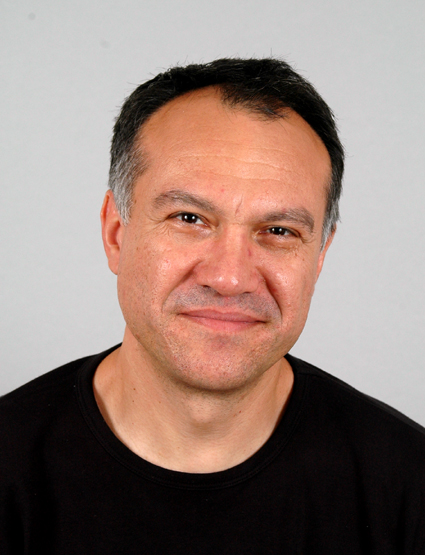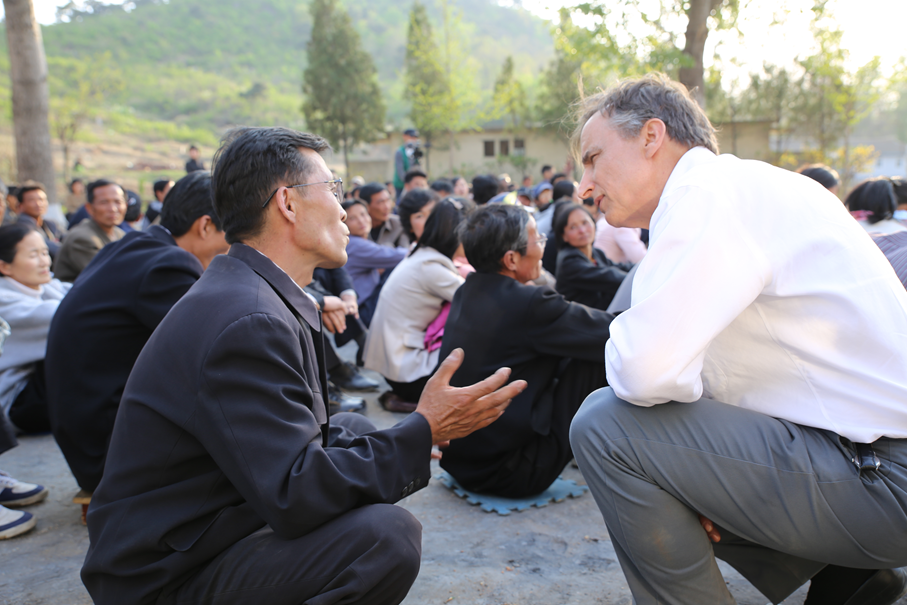Memo #351
By: Avram Agov – avram.agov [at] gmail.com
 The Democratic People’s Republic of Korea (DPRK) is widely perceived as isolated and rogue state with nuclear weapons. The political standoff on the Korean peninsula begs the question: to engage or not to engage? The answer is: this is not the question, particularly in the humanitarian field, which is governed by moral imperatives. Since the Great Famine struck the DPRK in the 1990s, various foreign non-government organizations (NGO) became instrumental in alleviating the humanitarian disaster. The Eugene Bell Foundation (EBF), founded in 1995 by Dr. Stephen Linton (a great grandson of Reverend Eugene Bell who arrived in Korea in 1895 as a missionary from the Southern Presbyterian Church in the United States), has been one of the most successful of such NGOs. The EBF’s work represents a rare continuity in engaging the DPRK over the past twenty years.
The Democratic People’s Republic of Korea (DPRK) is widely perceived as isolated and rogue state with nuclear weapons. The political standoff on the Korean peninsula begs the question: to engage or not to engage? The answer is: this is not the question, particularly in the humanitarian field, which is governed by moral imperatives. Since the Great Famine struck the DPRK in the 1990s, various foreign non-government organizations (NGO) became instrumental in alleviating the humanitarian disaster. The Eugene Bell Foundation (EBF), founded in 1995 by Dr. Stephen Linton (a great grandson of Reverend Eugene Bell who arrived in Korea in 1895 as a missionary from the Southern Presbyterian Church in the United States), has been one of the most successful of such NGOs. The EBF’s work represents a rare continuity in engaging the DPRK over the past twenty years.
The EBF’s success and continuity can be explained in part by two factors: its ability to act as a hub for complex institutional and human networks involving the two Koreas, the United States, and other countries, and its focus on clearly defined humanitarian projects. Volunteers and donors from many countries contribute time, energy, and funds to the EBF and its projects. The EBF started humanitarian relief operation in North Korea in 1995, responding to DPRK’s international plea for food aid. Since 1997, the Foundation focused on tuberculosis (TB) treatment, in particular on multi-drug resistant tuberculosis (MDR-TB)—the deadliest strain of the disease—in the most recent eight years in cooperation with DPRK Ministry of Public Health. Data is sporadic, but World Health Organization estimates indicate that the DPRK has some of the highest numbers of both TB and MDR-TB per 100,000 in the world. The Foundation’s treatment projects have reached at least seventy medical institutions treating thousands of TB and MDR-TB patients in the DPRK.
Although recent incidents with expelled humanitarian workers from the DPRK underscore the risks and challenges of running international aid programs in the country, EFB’s experience in treating tuberculosis patients in North Korea shows how people-to-people exchanges can be an effective way to engage the DPRK and generate positive outcomes in dealing with specific problems in the humanitarian field.
About the Author:
Avram Agov is an instructor at the Asian Studies Department of Langara College. He completed his PhD at the History Department of UBC and is now working on a manuscript, entitled “North Korea in the Socialist World, 1945-1991.”
If you enjoyed this memo, subscribe to our e-newsletter for free and receive new memos weekly via email.

A patient shares his experience with an EBF delegation member in North Korea, Spring 2015 (Credit: Eugene Bell Foundation).
Links
- Avram Agov, “Treating tuberculosis in North Korea: The experience of Eugene Bell Foundation,” in Tiempo Devorado [Consumed Times] Vol. 2, No 2 (2015).
- Avram Agov, “North Korea: Politics of Leadership Change” Harvard Asia Quarterly (Spring 2013): 15-27
- “Frequently Asked Questions,” Eugene Bell Foundation (2015).
- Gareth Johnson, “How should the world engage with North Korea?” The Guardian, October 8, 2015.
- Sung Chull Kim and David C. Kang (Eds), Engagement with North Korea: A Viable Alternative (State University of New York Press: 2010).
- Kyung-Ae Park, “Can we engage North Korea with soft power?” NK News, September 17, 2014.
Related Memos:
See our other memos on North Korea.